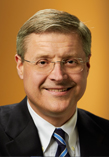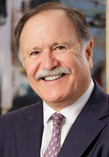© 2017 The Texas Lawbook.
By Mark Curriden
(June 25) – What do a Ukrainian mathematician and physicist, a Wisconsin securities lawyer nicknamed Emo, a secret meeting at a Greek Orthodox monastery in Arizona, the patron saint of St. Petersburg and a hugely successful – but under-the-radar – privately-held Houston financial research firm have in common?
They are all part of a bizarre, decade-long legal battle that has quietly taken place in the courts of Houston involving secret algorithms and mathematical formulas that aid high frequency trading and result in tens of millions of dollars in revenues.
The litigation started as a lawsuit in state court in Houston, was interrupted by an FBI investigation and then reemerged in a federal court trial that resulted in a $12.2 million judgment, is finally coming to an end.
Last Thursday, the U.S. Court of Appeals for the Fifth Circuit issued an unpublished opinion that upheld a 2015 Houston jury verdict that found that Ukrainian mathematician Andriy Kuharsky and Wisconsin securities lawyer and entrepreneur Emmanuel Mamalakis violated federal trade secret rights of Houston-based Quantlab Technologies.
In a 14-page opinion, a three-judge panel affirmed the jury’s award of $12.2 million to Quantlab and said that objections by Kuharsky and Mamalakis “have no merit.”
Quantlab General Counsel Tim McInturf, in an exclusive interview with The Texas Lawbook, said the appeals court decision is a huge victory for the Houston financial trading firm and a very important one to businesses in the world of high-frequency trading.

“The U.S. economy is based upon knowledge and innovation; our economy is not based upon manufacturing anymore,” the general counsel says. “So, the best thing we can do to protect high-wage jobs is to protect our IP.”
The facts in the bizarre case date back to 2001 when Quantlab hired Kuharsky and fellow Ukrainian Vitaliy Godlevsky, who is a physicist, to work on the financial research firm’s trading strategy. Their job was to find trends and patterns in large amounts of trading data.
Both men signed confidentiality agreements that they would not disclose or use any of Quantlab’s proprietary mathematical models, algorithms or formulas that the company employs as part of its trading strategy.
In 2007, Quantlab fired the duo due to “serious performance deficiencies.”
You can guess what happened next.
Quantlab claims – and the jury agreed – that Kuharsky and Godlevsky “copied large amounts of Quantlab source code and other proprietary information over the Internet on at least nine occasions, improperly using a Quantlab’s employee’s network credentials.”
The pair also made copies of the source code and thousands of pages of Quantlab’s confidential files, which they placed on CDs, DVDs and at least 13 different electronic storage devices, court documents show.
That same year, Godlevsky was visiting a Greek Orthodox monastery in Arizona where he just happened to meet Mamalakis, who was a former securities litigator from Milwaukee.
The two men decided to create their own high-frequency trading firm. They called the business SXP Analytics, which they named after Xenia, who was the patron saint of St. Petersburg, Russia in the late 1700s. The men planned to give portions of their profits to the poor.
Kuharsky joined SXP as an employee for a short period. The company’s revenues and profits soared.
Quantlab officials filed the first lawsuits in state court in Houston alleging that Kuhharsky and Godlevsky threatened to violate their confidentiality agreements unless the company paid them $25 million each.
But the civil complaint was put on hold at the request of the U.S. Attorney’s Office in Houston when the FBI raided SXP’s offices and the homes of its employees.
While federal prosecutors in Houston never brought criminal charges, court documents show that the FBI investigation unearthed evidence that Kuharsky downloaded code from Quantlab servers after he left the company.
In 2009, Quantlab filed a new lawsuit in federal court alleging that its trade secrets were taken and misappropriated.
On the eve of trial in May 2015, Godlevsky, SXP and other defendants reached an out-of-court settlement that reportedly paid $28 million to Quantlab.
Kuharsky and Mamalakis were not part of the settlement agreement. They took their case to trial before U.S. District Judge Keith Ellison.
Quantlab GC McInturf hired Lee Kaplan, a trial lawyer at the Houston litigation boutique Smyser Kaplan & Veselka to represent the company at trial. McInturf says he met Kaplan years earlier when the two lawyers were on opposing sides in a case.

“As the complexity of this case unfolded, I realized that this case really needed a trial expert like Lee leading the team,” McInturf says. “Lee was able to organize the team – which included the Littler Mendelson lawyers and the SKV lawyers – in such a way that everybody contributed what they did best and [Kaplan] pulled the trial presentation together.”
McInturf also credits Quantlab Associate General Counsel Simon Garfield, who he says was involved every aspect of the litigation and was “the central fact repository during the trial preparation phase.
McInturf, who was a litigation partner at Littler before joining Quantlab, says he is “very hands on” when it comes to trial strategy.
“I cannot keep myself from analyzing the facts, the witnesses and evaluating the strategy,” he says. “In this case, Lee even had a hard time keeping me from standing up and arguing in front of Judge Ellison in the early hearings. But as the case wore on, I handed the reins over and let the outside lawyers do their thing.”
Kuharsky hired Houston employment lawyer David C. Holmes to defend him. Mamalakis, whose nickname is Emo, represented himself at trial, which meant he had to ask himself questions on the witness stand and then answer those questions.
A Houston jury ruled for Quantlab and ordered the men to pay $12.2 million in damages.
Both men predicted they would win a reversal of the judgment on appeal.
The Fifth Circuit heard oral arguments in the case on June 6. Scott McDonald, a partner at Littler who also was involved in the trial, argued the case for Quantlab.
Sixteen days later, they rejected the defendants’ appeal and gave Quantlab a complete victory.
© 2017 The Texas Lawbook. Content of The Texas Lawbook is controlled and protected by specific licensing agreements with our subscribers and under federal copyright laws. Any distribution of this content without the consent of The Texas Lawbook is prohibited.
If you see any inaccuracy in any article in The Texas Lawbook, please contact us. Our goal is content that is 100% true and accurate. Thank you.
